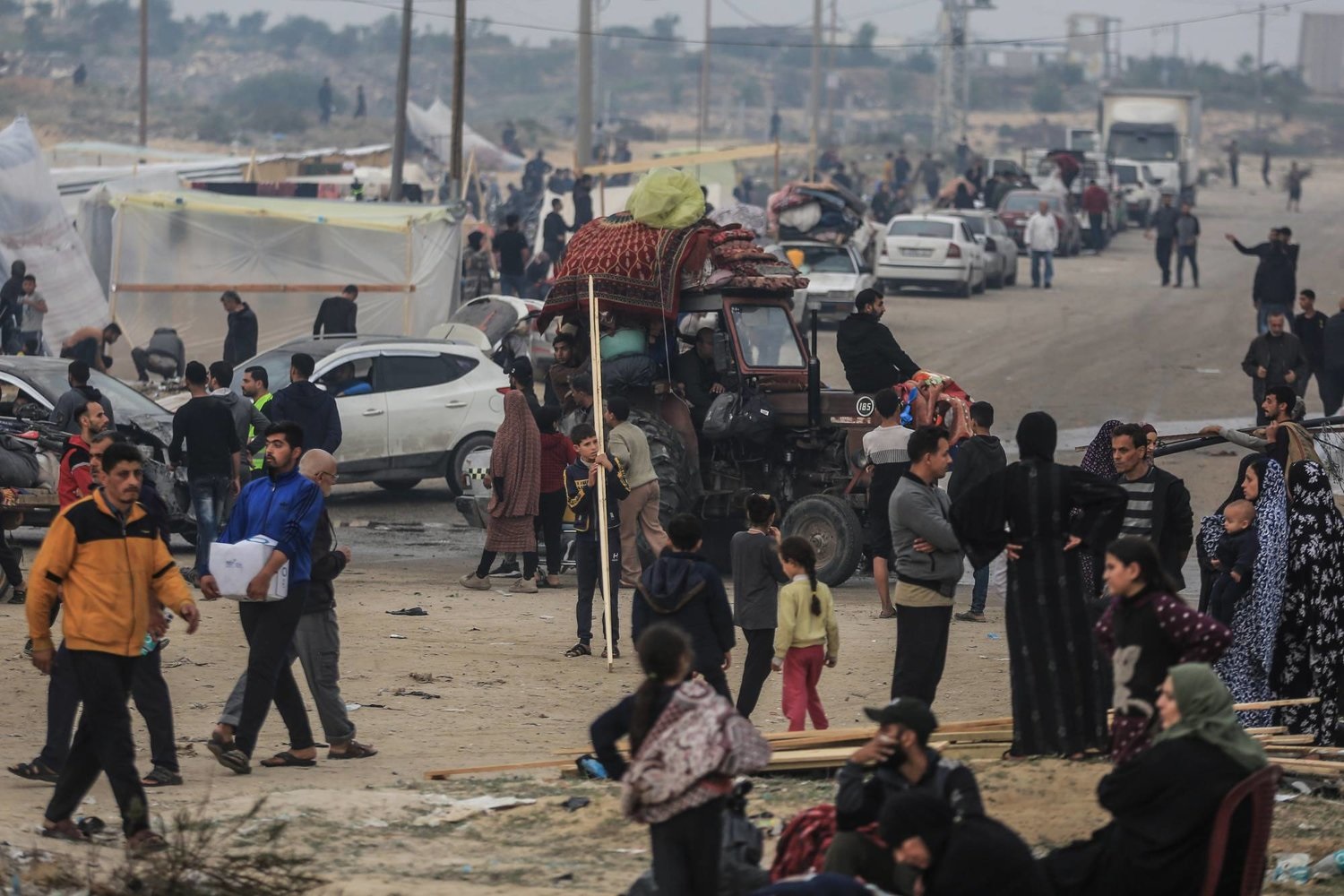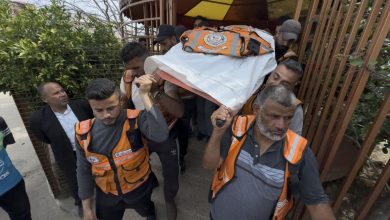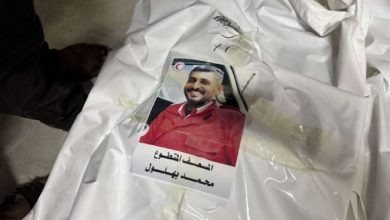Exploitation at the Border: Palestinians Forced to Pay Hefty Fees to Leave Gaza

Watan–The American agency “Bloomberg” documented testimonies of Palestinians confirming that they were forced to pay hefty bribes in exchange for leaving Gaza, as reported in a not-so-unique report. Several media reports, previously highlighted by Watan, have also confirmed this.
The agency stated that the Sisi regime relies on the principle of payment for passage, exploiting the suffering of civilians stranded at the borders and their need for treatment for their children and wounds. They impose exorbitant amounts on them to allow them to cross into Egypt through the Rafah crossing.
With the official closure of the border crossing and the continuation of the Gaza war, only a limited number of Palestinians needing to leave have managed to do so, according to Bloomberg, which documented the testimonies of many Palestinian refugees, validating their hardships with undeniable evidence.
$10,000 per person!
According to the source, some Gazans found that they could leave the territory for Egypt if they had enough money. The Sisi authorities force each individual who wants to leave to pay around $10,000, and some are forced to seek assistance online for the treatment of their children.
Bloomberg quoted a woman named Yasmin, who mentioned that she and others wanted to leave Gaza. She stated that she gathered 28,000 euros (31,000 dollars), took her mother and her three sisters, and her niece to Egypt.
Yasmin mentioned that she paid $6,500 for each person through a “coordinator” with Egyptian officials who take bribes.
The woman, who refused to disclose her family’s name out of fear for their safety, commented: “My sister is sick, and she is now in the hospital, and without coordination, we don’t know what would have happened to her.”
Yasmin’s situation reflects that of thousands in Gaza, claiming that this was the only way to leave the territory, while Egyptian authorities deny these practices despite numerous reports confirming them.
Denial by Sisi officials
Officials from Sisi’s authorities, such as Diaa Rashwan, head of the General Authority for Information, claim that no additional fees have been officially collected from those coming from Gaza.
Rashwan rejected the testimonies that speak of imposing fees to allow Palestinians to cross into Gaza.
Rashwan’s statements contradict dozens, if not hundreds, of testimonies and reports confirming a different reality, as reported by Bloomberg.
One of those testimonies is from “Aya,” who arrived in Gaza from the Emirates last summer and gave birth to her first child in the sector.
Aya decided to stay with her family for a while. After a month, war broke out, and Aya, her parents, siblings, and her newborn daughter fled more than once before reaching the southern city of Khan Yunis.
There, the lady was injured by shrapnel and was taken to the hospital. She narrates how her family started negotiations to get her out for treatment in Egyptian hospitals.
Suspicious lists
Aya explained that the mediator requested $13,000 to include her and her daughter in the list, and after negotiations, the amount was reduced to $10,000.
Aya added, “My husband took a loan to pay the amount, and when her name appeared on the lists submitted by Egypt to the administration of the Rafah crossing on the Palestinian side, the lady finally managed to leave.”
According to Bloomberg, the mechanism for including names in those lists was not clear.
Dozens of online campaigns have emerged with the news about the expensive “coordination” to save the lives of many patients in need of urgent medical support.
Despite the more regular opening of the crossing from Sunday to Thursday in recent years, border crossing has been limited to a few hundred people daily.
Tens of thousands of those wishing to leave are forced to register weeks or months in advance with the authorities managing the crossing.
The Ministry of Health in Gaza mentioned that only a few hundred of the wounded have managed to leave for Egypt to receive advanced medical care through the Rafah crossing.






